Nelson Mandela death: In his own words
- Published
Nelson Mandela, in his own words
Nelson Mandela's ability to use words to breathe life into his cause was one of his most powerful weapons in the struggle for black equality in South Africa.
Here is a selection of some of his most compelling quotes.

Conclusion of his three-hour defence speech at his 1964 trial for sabotage and treason:
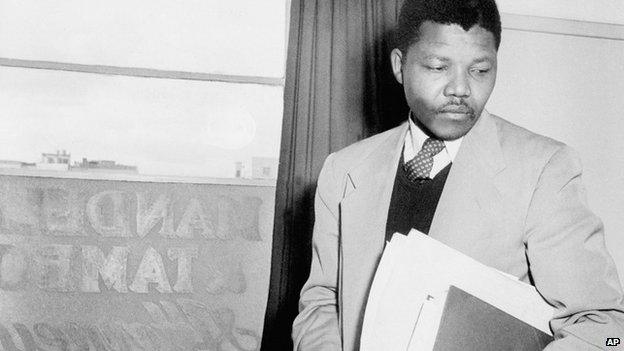
"I have fought against white domination, and I have fought against black domination. I have cherished the ideal of a democratic and free society in which all persons live together in harmony and with equal opportunities. It is an ideal which I hope to live for and to achieve.
"But if needs be, it is an ideal for which I am prepared to die."

Letter from Robben Island, April 1971:
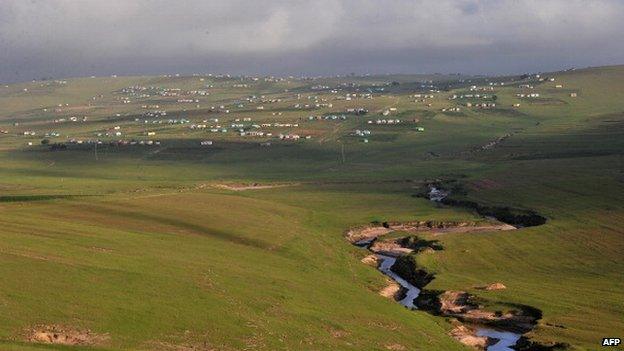
"There are times when my heart almost stops beating, slowed down by heavy loads of longing.
"I would love to bathe once more in the waters of Umbashe, as I did at the beginning of 1935."

On his time imprisoned on Robben Island (from Nelson Mandela's autobiography, The Long Walk to Freedom, 1994):
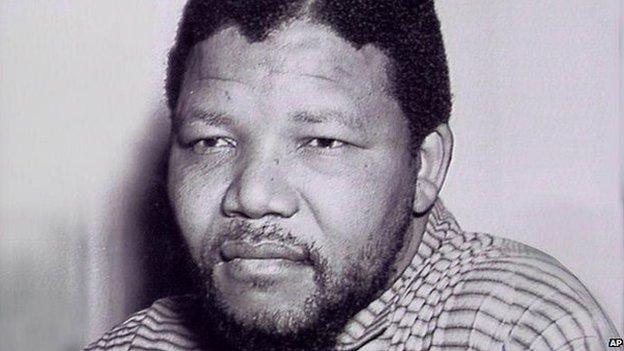
"I found solitary confinement the most forbidding aspect of prison life. There is no end and no beginning; there is only one's own mind, which can begin to play tricks. Was that a dream or did it really happen? One begins to question everything. Did I make the right decision, was my sacrifice worth it? In solitary, there is no distraction from these haunting questions.
"But the human body has an enormous capacity for adjusting to trying circumstances. I have found that one can bear the unbearable if one can keep one's spirits strong even when one's body is being tested. Strong convictions are the secret of surviving deprivation; your spirit can be full even when your stomach is empty."

Message read by his daughter Zinzi to a rally in Soweto in 1985:
"In the name of the law, I found myself treated as a criminal... not because of what I had done, but because of what I stood for, because of my conscience. No-one in his right senses would choose such a life, but there comes a time when a man is denied the right to live a normal life, when he can only live the life of an outlaw because the government has so decreed to use the law.
"The question being asked up and down the country is this: Is it politically correct to continue preaching peace and non-violence when dealing with a government whose barbaric practices have brought so much suffering and misery to Africans? I cannot and will not give any undertaking at a time when I, and you, the people, are not free. Your freedom and mine cannot be separated. I will return."
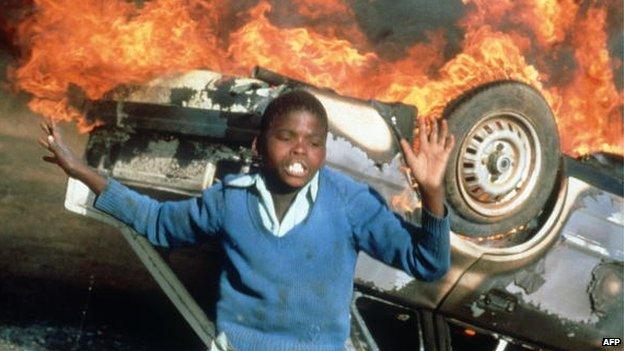

Describing the day of his release from prison in 1990 (The Long Walk to Freedom, 1994):
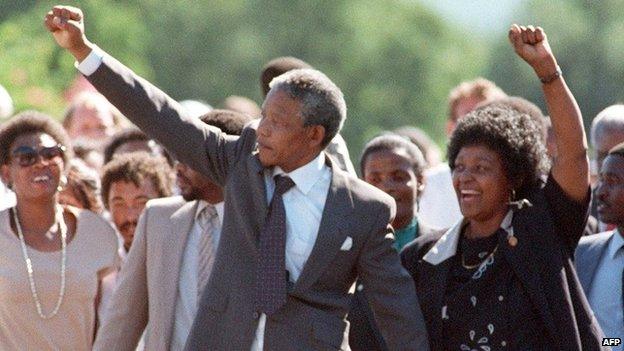
"The cameras started clicking like a great herd of metallic beasts. I raised my right fist and there was a roar. I had not been able to do that for 27 years and it gave me a surge of strength and joy."

On fatherhood (The Long Walk to Freedom, 1994):
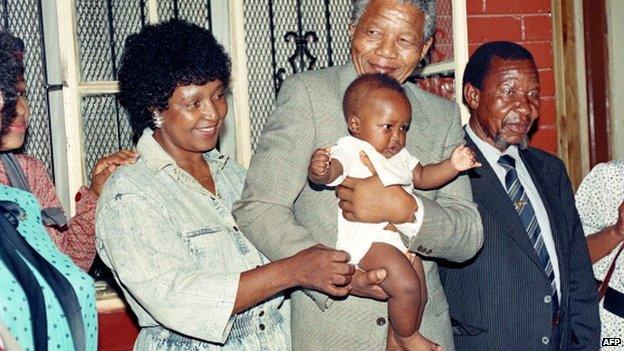
"Perhaps I was blinded to certain things because of the pain I felt for not being able to fulfil my role as husband to my wife and father to my children.
"It seems the destiny of freedom fighters to have unstable personal lives... to be the father of a nation is a great honour, but to be the father of a family is a greater joy. But it was a job I had far too little of."

On prison (The Long Walk to Freedom, 1994):
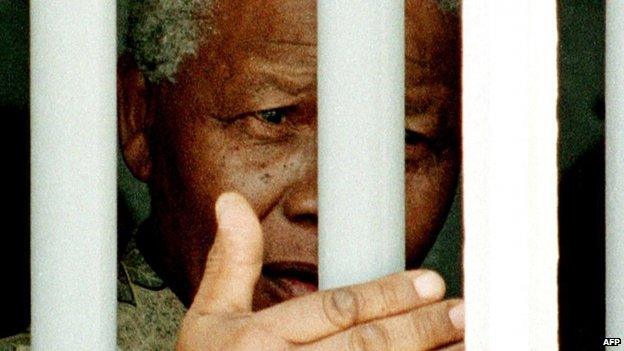
"A man who takes away another man's freedom is a prisoner of hatred, he is locked behind bars of prejudice and narrow-mindedness... The oppressed and the oppressor alike are robbed of their humanity."

On reconciliation (on acceptance of the 1993 Nobel Peace Prize, shared with then President FW de Klerk):
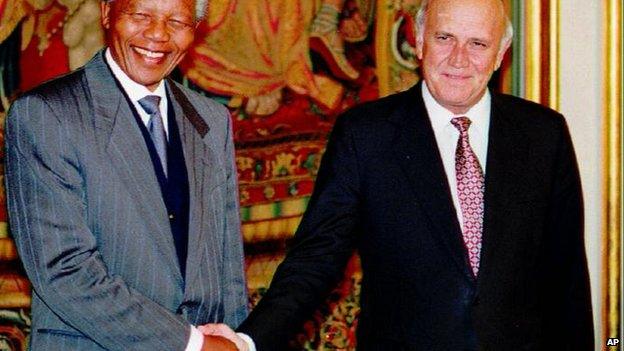
"The value of our shared reward will and must be measured by the joyful peace which will triumph, because the common humanity that bonds both black and white into one human race will have said to each one of us that we shall all live like the children of paradise...
"But there are still some within our country who wrongly believe they can make a contribution to the cause of justice and peace by clinging to the shibboleths [dogmas] that have been proved to spell nothing but disaster.
"It remains our hope that these, too, will be blessed with sufficient reason to realise that history will not be denied and that the new society cannot be created by reproducing the repugnant past, however refined or enticingly repackaged."

Presidential inauguration speech, 10 May 1994:
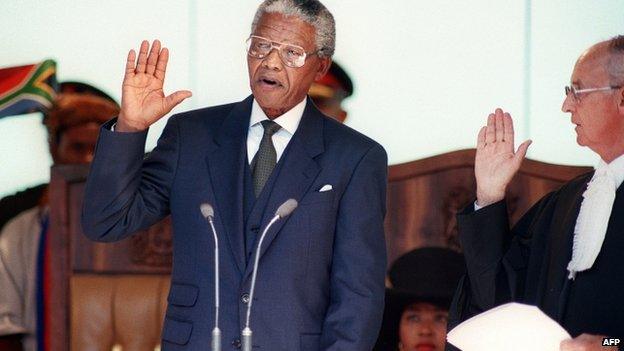
"We enter into a covenant that we shall build a society in which all South Africans, both black and white, will be able to walk tall without any fear in their hearts, assured of the inalienable right to human dignity, a rainbow nation at peace with itself and the world."
"Never, never, and never again shall it be that this beautiful land will again experience the oppression of one by another... The sun shall never set on so glorious a human achievement. Let freedom reign. God bless Africa!"

Address to international Aids conference, Durban, July 2000:
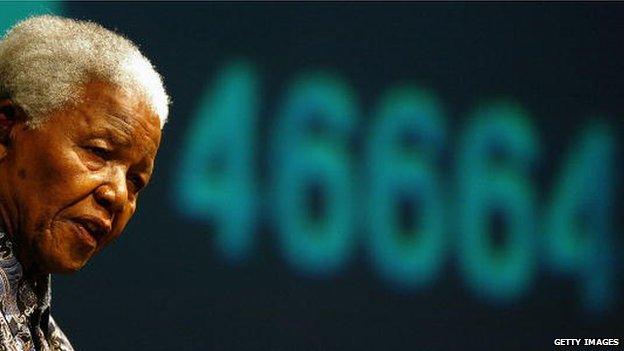
"In the face of the grave threat posed by HIV/Aids, we have to rise above our differences and combine our efforts to save our people. History will judge us harshly if we fail to do so now, and right now.
"Let us not equivocate: A tragedy of unprecedented proportions is unfolding in Africa. Aids today in Africa is claiming more lives than the sum total of all wars, famines and floods, and the ravages of such deadly diseases as malaria. It is devastating families and communities; overwhelming and depleting health care services; and robbing schools of both students and teachers...
"Aids is clearly a disaster, effectively wiping out the development gains of the past decades and sabotaging the future... Something must be done as a matter of the greatest urgency."

Message to the Live 8 concert in Edinburgh, July 2005:
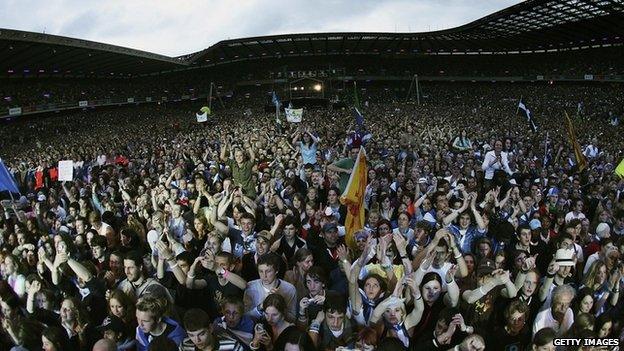
"Massive poverty and obscene inequality are such terrible scourges of our times... So much of our common future will depend on the actions and plans of these leaders. They have a historical opportunity to open the door to hope and the possibility of a better future for all...
"Sometimes it falls upon a generation to be great. You be that great generation. Let your greatness blossom. Of course the task will not be easy. But not to do this would be a crime against humanity, against which I ask all humanity now to rise up."

A rare public rebuke for Zimbabwe's President Robert Mugabe, speaking at a dinner in London to mark his 90th birthday:
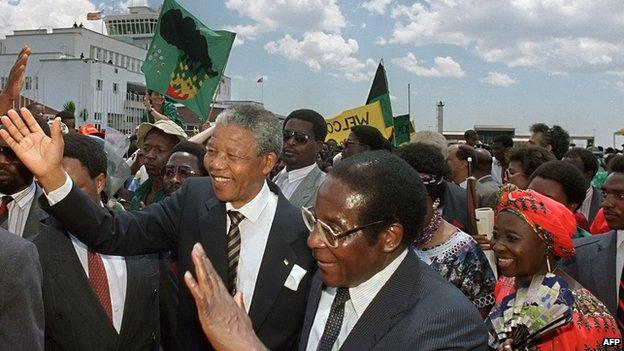
"We watch with sadness the continuing tragedy in Darfur. Nearer to home we have seen the outbreak of violence against fellow Africans in our own country and the tragic failure of leadership in our neighbouring Zimbabwe."

At the opening of the 2010 World Cup:
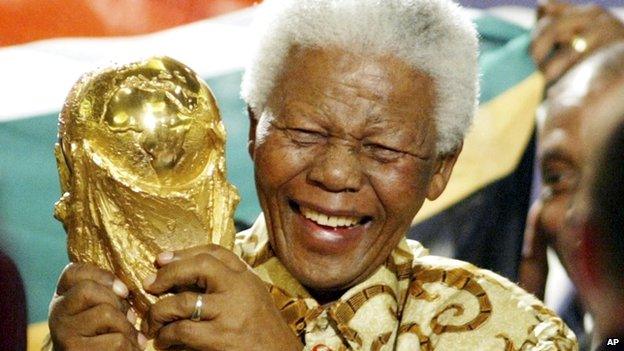
"The people of Africa learnt the lessons of patience and endurance in their long struggle for freedom. May the rewards brought by the Fifa World Cup prove that the long wait for its arrival on African soil has been worth it. Ke nako [It is time]."

On his public image (from Mandela's second autobiography, Conversations With Myself, 2010):
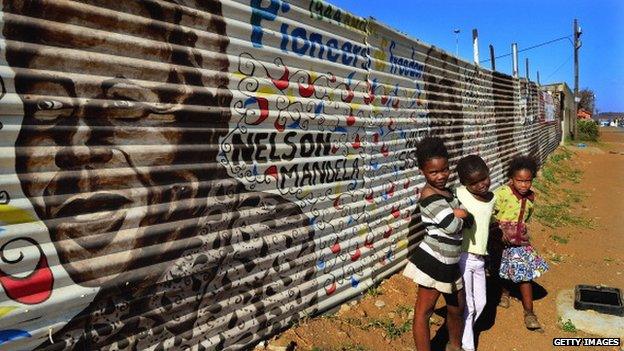
"One issue that deeply worried me in prison was the false image I unwittingly projected to the outside world; of being regarded as a saint.
"I never was one, even on the basis of an earthly definition of a saint as a sinner who keeps trying."